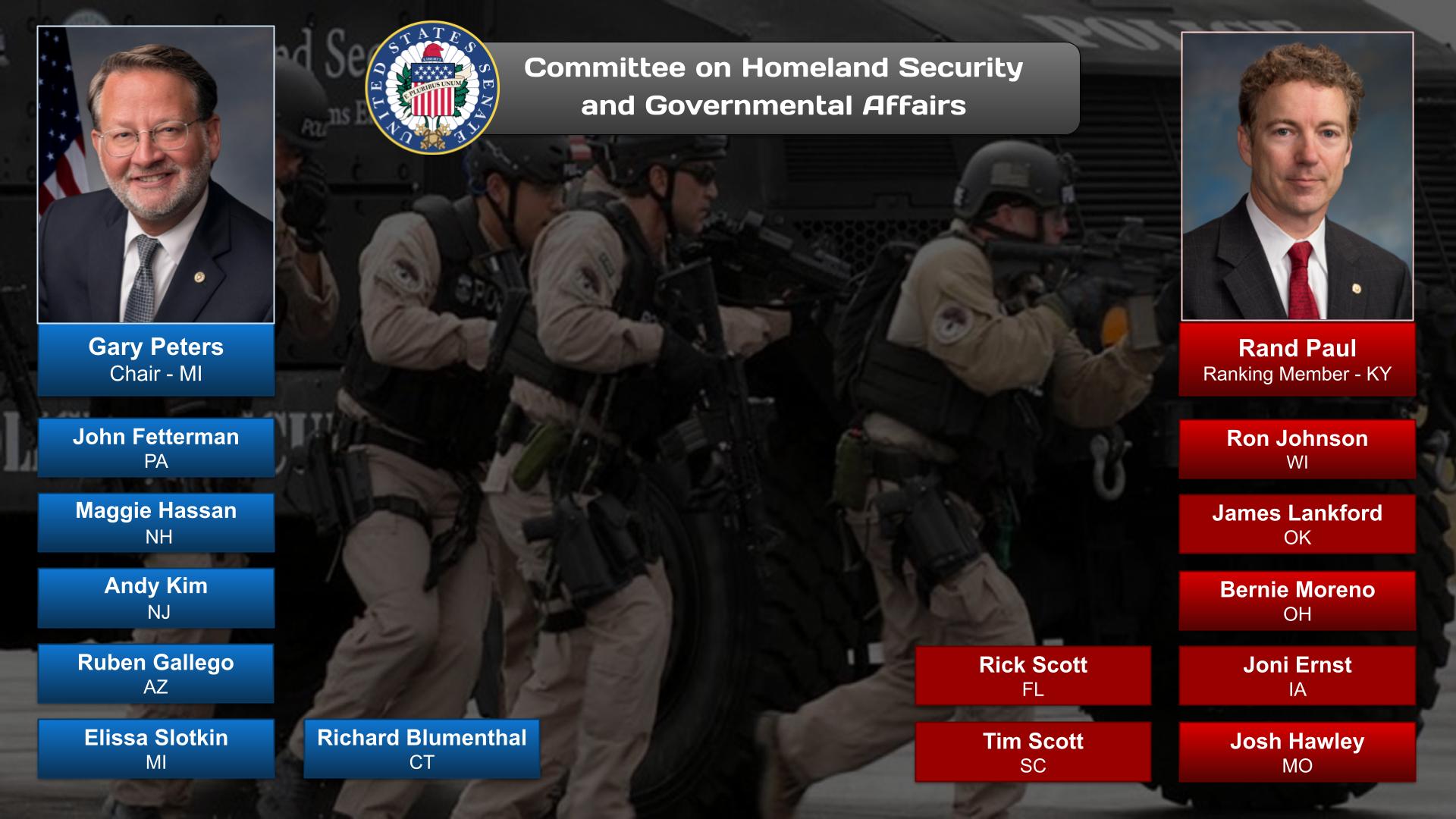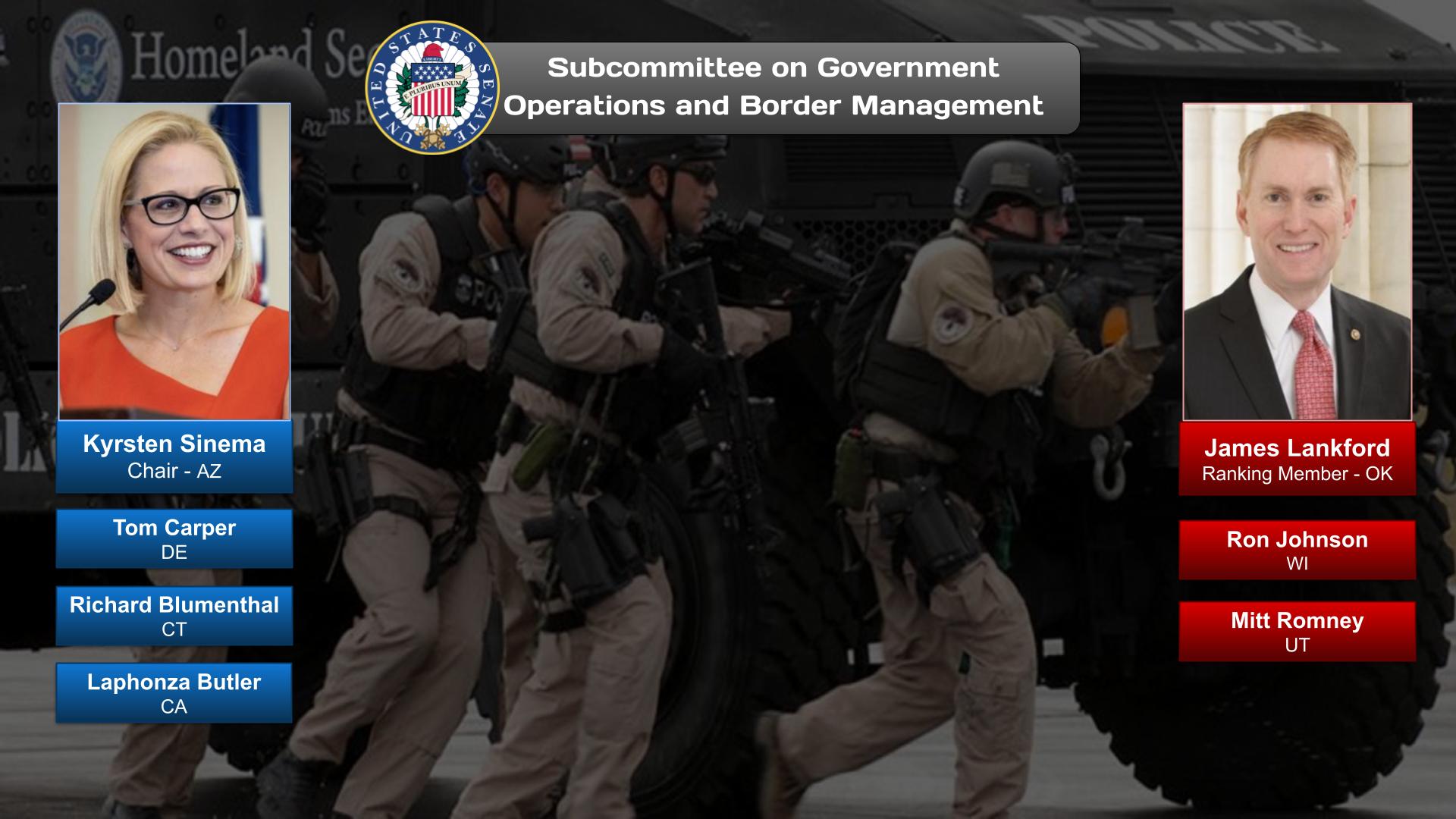Mission:
The Committee on Homeland Security and Governmental Affairs (HSGAC) is the Senate’s primary oversight committee with broad jurisdiction over government operations generally and the Department of Homeland Security in particular.
House counterparts: Committee on Homeland Security and Committee on Oversight and Reform
Democratic Members (Minority):
Gary Peters, Michigan – Ranking member
Maggie Hassan, New Hampshire
Jacky Rosen, Nevada
Richard Blumenthal, Connecticut
Andy Kim, New Jersey
Ruben Gallego, Arizona
Elissa Slotkin , Michigan
John Fetterman, Pennsylvania
Republican Members (Majority):
Rand Paul, Kentucky
Ron Johnson, Wisconsin
James Lankford, Oklahoma
Bernie Moreno, Ohio
Rick Scott, Florida
Josh Hawley, Missouri
Joni Ernst, Iowa
Tim Scott, South Carolina
https://www.youtube.com/watch?v=Lh8r010fXrI
Senate Homeland Security Examining Irregularities 2020 Election


